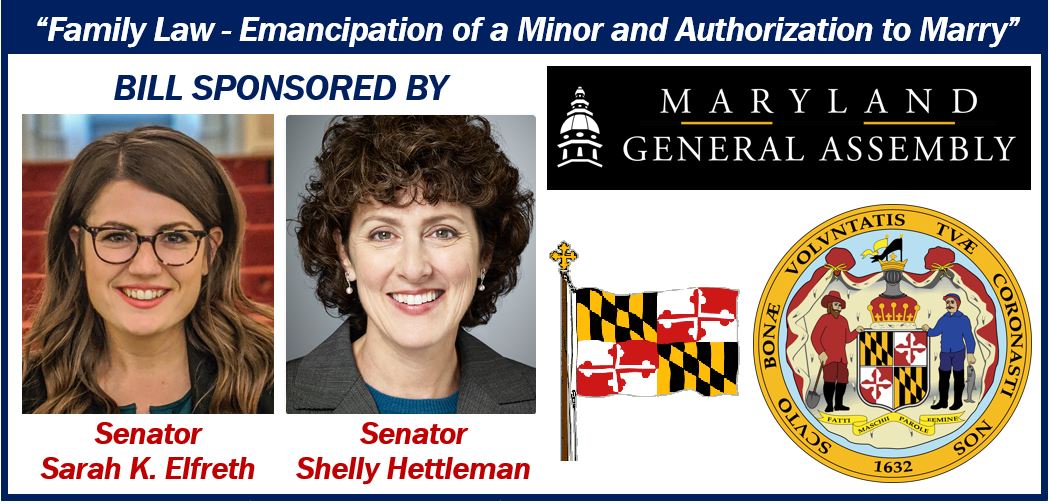State Del. Vanessa Atterbeary reintroduced a bill earlier this year that proposes raising the minimum age to marry in Maryland. However, this is not the bill’s first go around with Maryland’s general assembly. This bill, Family Law – Emancipation of a Minor and Authorization to Marry, has been proposed five times in past years but has not yet been passed and implemented into Maryland state legislature.
As this bill potentially continues its long history of being rejected by the general assembly, other states continue to successfully pass legislation to raise their minimum marriage age.

Maryland’s Current Stance
In the State of Maryland, teenagers who are 15 years old can marry in the case of a pregnancy or birth of a child with parental consent. The current law also allows 16 and 17-year-olds to marry simply with consent from parents or guardians.
During the general assembly in 2019, lawmakers quickly agreed on the stance that 18-year-olds should not be permitted to purchase tobacco products and subsequently raised the age to purchase these products to 21.
Today, we are still seeing an issue with agreeing on what age is too young for teenagers to get married. Because of this, teenagers are getting married at 15, 16, and 17 years old. According to statistics provided by the Maryland Health Department, 3,400 teens got married in Maryland between the years 2000 and 2017.
Benefits of the Bill
This bill would allow 17-year-olds to get married to partners who are, at the most, four years older than them. Teenagers younger than 17 would have to wait for marriage. This bill has the potential to protect vulnerable girls from being pressured at an early age to marry men much older than them.
This bill also creates a space for teenagers of age who choose to get married to undergo a judicial review process created to expose manipulative and unhealthy relationships between teenagers and their spouses. Through this legislation, teenagers would be appointed an attorney to undergo a review process to ensure their decision to marry is self-made. This process would also give teenagers a platform to become emancipated from their parents so they would be able to escape a potentially abusive situation without parental consent.
The truth is, without emancipation, teenagers who get married have no rights as an adult which is problematic. Under Maryland’s current laws, 15-year-olds cannot open a credit card, sign a lease to an apartment or file for a divorce. Additionally, shelters who may be assisting or protecting teenagers running from toxic marriages or dangerous situations can face legal repercussions for harboring a minor. These are real issues plaguing young married girls today which the proposed bill has the ability to counteract.
Maryland’s hesitancy to follow other states’ lead in passing up-to-date marriage legislation that both serves and protects its citizens has made the state a destination for child and teenage marriage. National statistics indicate that around 80% of minor marriages end in divorce which tend to be complicated, difficult and emotional according to Rockville divorce lawyers.
“A divorce is never fun, but going through one at a young age can be even more challenging,” said Attorney Tammy Begun of Capital Family Law Group. “As people age, they generally become more mature. By going through a divorce at a young age, couples can struggle to work through the process as effectively as a more emotionally mature adult.”
The Future of the Bill
As the bill is revisited this year, many are optimistic for its success and passing. The 2021 bill was revised from previous year’s proposals with the help and input from organizations who have been traditionally opposed to its passing, such as the Women’s Law Center of Maryland. The bill is currently awaiting approval from the Senate Judicial Committee before it is moved to a floor vote.
Interesting related article: “What is Justice?“

